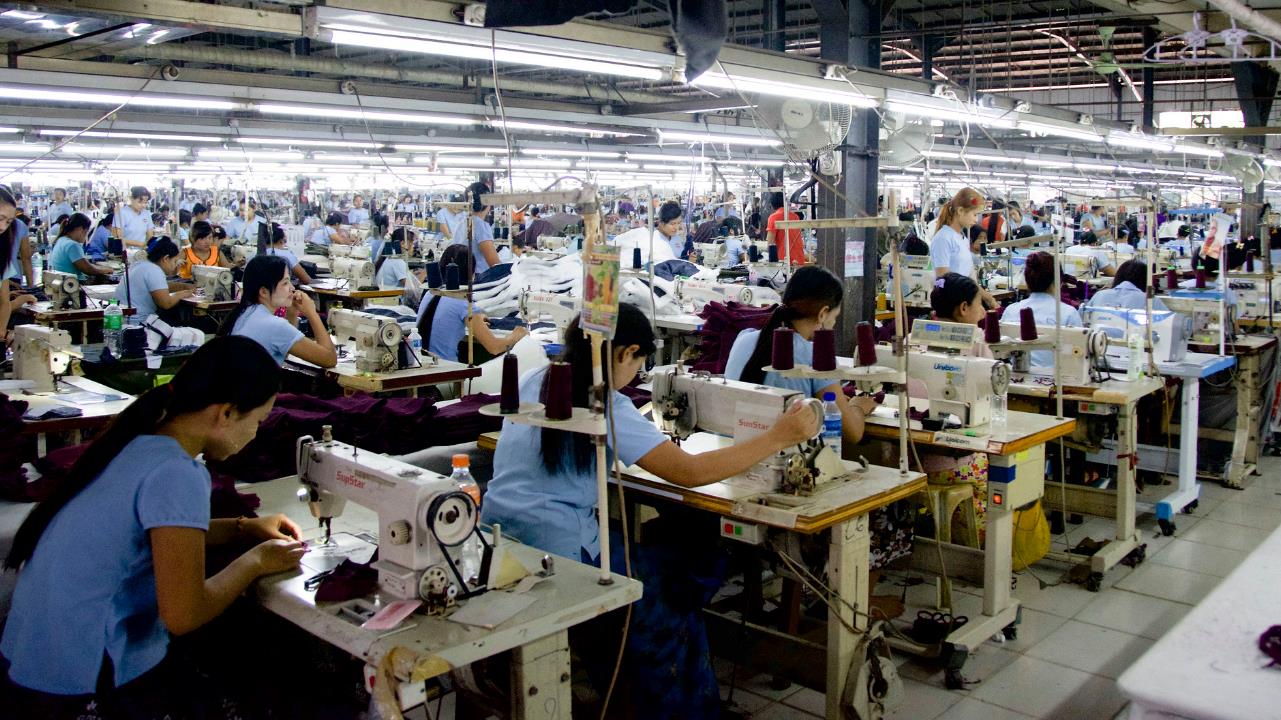Trade deals seen promising relief to garment firms

THE Labor department said disruptions to the workforce stemming from the looming closure of a garment factory in Central Luzon could be temporary, and added that the government is working on trade agreements that will improve the industry’s prospects.
“The Department of Labor and Employment (DoLE) has been and will always be seriously concerned about any worker displacement, be it due to lay-offs but more so if it’s closure,” Labor Secretary Bienvenido E. Laguesma told BusinessWorld via Viber.
“I do hope it’s isolated and temporary in nature, as there are ongoing efforts to enhance trade with existing partners and develop new ones.”
The US began imposing a 19% tariff on Philippine-made goods on Aug. 17, putting the Philippines at par with regional rivals with lower cost bases.
The US accounted for $12.14 billion in Philippine exports last year.
Mr. Laguesma said that while rising wages may have contributed to the pressure on the industry, it should not be viewed as the primary cause of closures.
“Workers deserve fair wages,” he said. “There could be other operational costs and issues — from power and logistics to regulatory challenges — that influence these decisions.”
He said DoLE can immediately activate programs like the Tulong Panghanapbuhay sa Ating Disadvantaged/Displaced Workers, the DoLE Integrated Livelihood Program, and the Adjustment Measures Program to provide emergency employment and livelihood support to affected workers.
He added that Technical Education and Skills Development Authority offers upskilling and retooling initiatives that can help workers transition to other industries, while youth employability programs such as the Special Program for the Employment of Students, Government Internship Program, and JobStart Philippines Program could be extended to dependents of displaced employees.
Assistant Professor Benjamin B. Velasco of the University of the Philippines School of Labor and Industrial Relations said the Central Luzon case may be an isolated incident, but it highlights structural weaknesses in the export economy.
“For now, the possible factory closure in Central Luzon is an outlier event as unemployment is low and economic growth is robust,” Mr. Velasco said via Messenger. “Still, exporters shutting down is always a risk for an economy.
He said the government should adopt both short-term safety nets and long-term structural reforms to ensure resilience.
“In the short term, there must be programs to transition affected workers — from social security and emergency work to job reskilling. For the long term, we need to move away from export orientation to creating domestic demand through an industrial policy and asset redistribution,” he added.
Mr. Velasco added that high wages, while often seen as a disadvantage for exporters, could strengthen the domestic economy by stimulating consumption.
“High wages are a disadvantage for commodity exporters but a boon for domestic producers since it creates higher demand,” he said.
Jose G. Matula, president of the Federation of Free Workers (FFW), called the closure threat a “wake-up call” for both the government and industry.
“The threat of factory closures in Central Luzon shows how fragile our manufacturing jobs are — when global trade trembles, workers suffer first,” Mr. Matula said via Viber. “This is not just a labor issue, but an economic one that demands collective action.”
Mr. Matula urged DoLE, the Department of Trade and Industry, and the Department of Economy, Planning, and Development, to convene a national tripartite dialogue with employers’ groups such as the Employers Confederation of the Philippines and the Philippine Chamber of Commerce and Industry, alongside major labor centers including NAGKAISA, the Trade Union Congress of the Philippines, and the FFW, to develop coordinated strategies to safeguard jobs and sustain the industrial base.
He also pointed to the high cost of doing business — including power rates, logistics, and red tape — as deeper issues requiring solution.
While trade disruptions may disrupt operations, Mr. Matula said the episode highlights the importance of giving workers a greater voice in shaping industrial policy.
In a statement, the Philippine Independent Garment and Leather Association (PIGLAS) called for urgent action to rescue the struggling garment industry, warning that the crisis demands more than bailouts.
The group said government intervention should provide a lifeline for both businesses and the workers sustaining them.
PIGLAS said that any proposed rescue package must include workers in the decision-making process. It said employers and workers should jointly come up with proposals that address not only business survival but also employment stability and worker welfare.
The group also pushed for reforms to the Electric Power Industry Reform Act, arguing that high electricity costs continue to burden manufacturers and weaken competitiveness.
Lowering power rates, PIGLAS said, is critical to preserving jobs and sustaining production. — Chloe Mari A. Hufana



